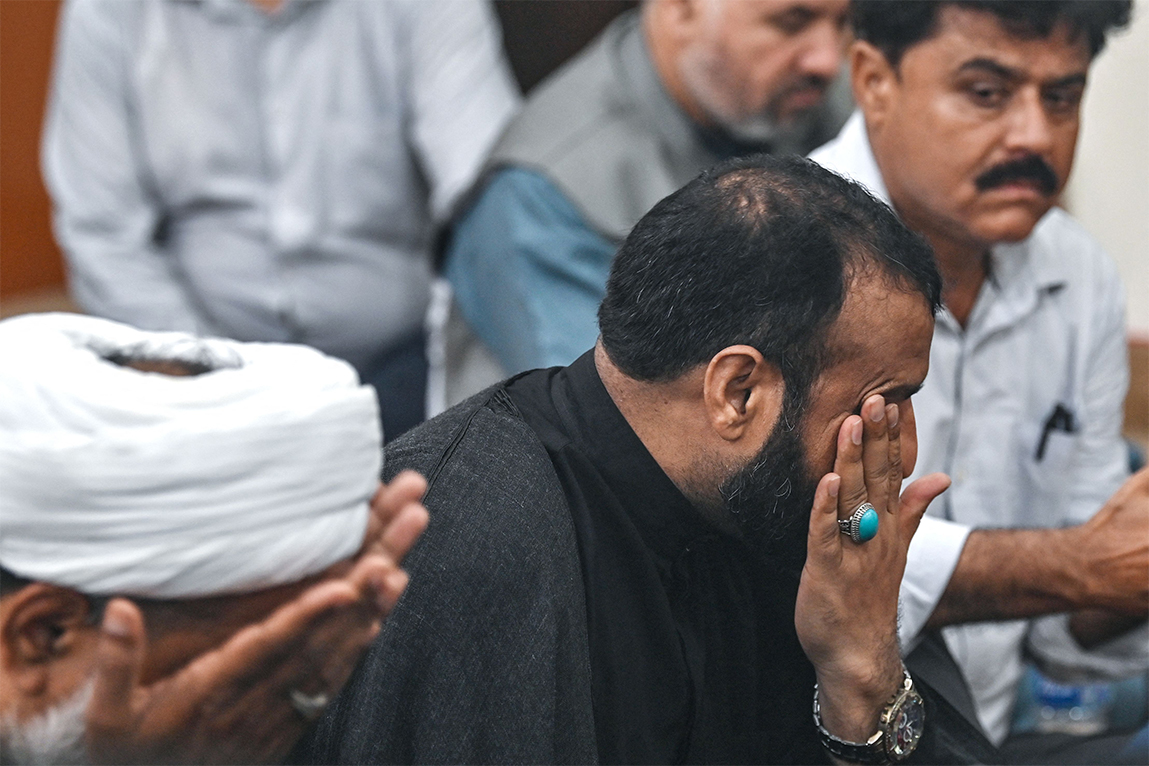ISLAMABAD: Prime Minister Shehbaz Sharif on Tuesday paid tribute to late Iranian President Ebrahim Raisi for strengthening Pakistan-Iran relations and promoting regional cooperation, a day after Tehran confirmed he had died in a helicopter crash with the country’s foreign minister and other officials.
Iranian authorities first raised alarm on Sunday afternoon when they lost contact with Raisi’s helicopter as it flew through a fog-shrouded mountain area of the Jolfa region of East Azerbaijan province. The Iranian president, Foreign Minister Hossein Amir-Abdollahian and seven others were confirmed dead by state media on Monday after search-and-rescue teams found their crashed helicopter in a mountainous region of northern Iran.
Chairing a meeting of the federal cabinet in Islamabad, Sharif offered his condolences over Raisi’s death, saying that Pakistan had lost “a friend who was like a brother.”
“Dr. Raisi will forever be remembered along with services to his nation, for promoting Pakistan-Iran relations and regional cooperation,” the Pakistani prime minister said. “His visit to Pakistan last month was an important milestone in further strengthening and stabilizing our bilateral relations.”
Sharif said Pakistan would continue with Raisi’s vision to promote Islamabad’s ties with Iran, adding that the Pakistani cabinet pays tribute to the late Iranian president for his “excellent services” for the region.
“May Allah grant Iran’s President Dr. Ebrahim Raisi, Iran’s foreign minister and their friends a high status in paradise,” he said.

People mourn the death of Iran's President Ebrahim Raisi in a helicopter crash, during a condolence ceremony at the Iran Culture Centre in Karachi on May 20, 2024. (FP)
In April, Raisi arrived in Pakistan on a three-day official visit to Pakistan as the two Muslim neighbors sought to mend ties after unprecedented tit-for-tat military strikes earlier this year.
The Iranian president held delegation-level meetings in the Pakistani capital as well as one-on-one discussions with Pakistan’s prime minister, president, army chief, Senate chairman and National Assembly speaker.
During the visit, Raisi had also overseen the signing of eight agreements between the two countries that covered different fields, including trade, science technology, agriculture, health, culture, and judicial matters.
His death takes place as the Middle East remains unsettled by Israel’s war on Gaza, during which Raisi under Supreme Leader Ayatollah Ali Khamenei launched an unprecedented drone-and-missile attack on Israel last month.
Under Raisi, Iran enriched uranium closer than ever to weapons-grade levels, further escalating tensions with the West as Tehran also supplied bomb-carrying drones to Russia for its war in Ukraine and armed militia groups across the region.



















